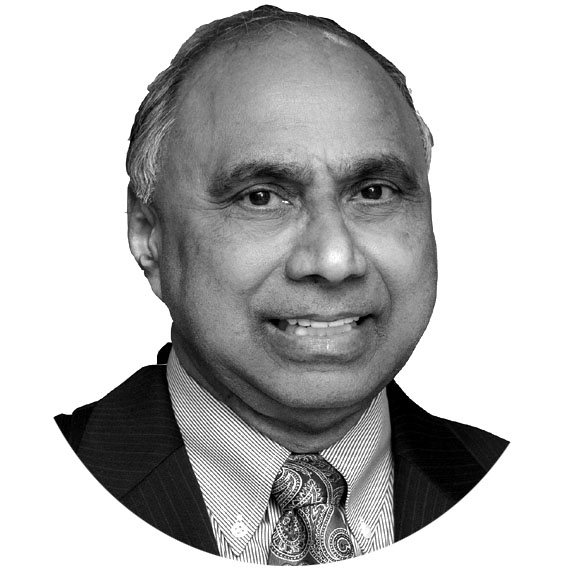Frank Islam
THE 2019 Transparency International’s Corruption Perceptions Index (CPI) which ranks 180 countries based on “perceived levels of public sector corruption” released last week revealed that “a majority of countries are showing little to no improvement in tackling corruption.” Pakistan falls into this category. It received a CPI score of 32 in 2019 and a ranking of 120 compared to a score of 33 and ranking of 117 in 2018. Pakistan’s score is below the average of 43 and far below the best score of 87 on the CPI which draws on 13 surveys and expert assessments to give a score from zero (highly corrupt) to 100 (very clean.) This low score and ranking must undoubtedly be of concern to the government of Prime Minister Imran Khanand his party Pakistan Tehreek-i-Insaf’s (PTI) which came into power with eradicating public sector corruption as one of its major themes. And, the Khan administration has implemented some major anti-corruption initiatives including setting up an Assets Recovery Unit, introducing a whistleblower law, and giving a free hand to the National Accountability Bureau (NAB), the official authority to fight corruption, to catch reportedly corrupt elements. Pakistan’s CPI indicates, however, that there is still much more that needs to be done. It is my understanding that social and political analysts in Pakistan have advanced their own assessments and recommendations to enhance the anti-corruption efforts. They should be taken into account in developing a plan and agenda for moving the anti-corruption campaign forward. In addition, there is much to be learned by studying and emulating best practice from developed nations around the world such as Denmark, New Zealand, Finland, Sweden and Norway which rank at the top of the CPI. An examination of these countries reveals that they have the following practices in place that prevent or inhibit corruption:
1. Integrity Systems – there are evolved National Integrity Systems to fight corruption and a broad consensus across all segments of the society that fighting corruptions requires public participation and transparent mechanisms such as information disclosure etc. 2. Socioeconomic Welfare Model – Denmark along with New Zealand ranks at the top of the CPI ranking. Danish society has a number of features which retard corruption. They include: decent salaries, social security, fair working environment, pension schemes and others. The sense of financial and social security, even when they are not able to work, minimizes corruption. 3. Anti-Corruption Policy Integrated with Corporate Social Responsibility – countries such as Denmark have a dual focus on Corporate Social Responsibility and anti-corruption policies. 4. Budget Information Publicly Available – making all budget information public is another key point in containing corruption. 5. Free Media – press freedom and the media eye on public and private institutions and political funding lowers the possibility of corruption. 6. Effective Legal System – a strong, impartial and result-oriented legal framework that criminalizes and penalizes corruption is an integral part of a comprehensive anti-corruption program. Add to these measures, the following general recommendations that Transparency International has set forth to combat public sector corruption: 1) Control political financing to prevent excessive money and influence in politics; 2) Tackle preferential treatment to ensure budgets and public services aren’t driven by personal connects or biased towards special interests; 3) Manage conflicts of interest and address “revolving doors”; 4) Regulate lobbying activities by promoting open and meaningful access to decision-making; 5) Strengthen electoral integrity and prevent and sanction misinformation campaigns; 6) Empower citizens and protect activists, whistleblowers and journalists; 7) Reinforce checks and balances and promote the separation of powers. The Khan Government should take all of this information into consideration to continue to develop and implement a comprehensive plan with wide-ranging anti-corruption reforms which will benefit all Pakistanis.
According to a World Economic Forum article published before the 50th World Economic Forum meeting in Davos Switzerland last month, corruption, bribery, theft and tax evasion, and other illicit financial flows cost developing countries $1.26 trillion per year. That is enough money to raise the 1.4 billion people who earn less than $1.25 a day, above the poverty level and keep them there for at least six years. In conclusion, ensuring citizens regardless of their race, religion or economic status have equal opportunity in a fair and open society is one of my personal priorities as a philanthropist and civic leader. That is one of the reasons why I established the Frank Islam Institute for 21st Century Citizenship in 2018. Eliminating public sector corruption is a major step forward to levelling a country’s playing field and taking it out of the controlling hands of wealthy and influential. In all candour, I must say that the corruption rankings for many countries such as India and the United States are not as good as they should be either. India scored 41 on this year’s CPI and ranked 80th and the USA scored 69 and ranked 23rd. There is a need and room for improvement in those countries just as there is in Pakistan. It is imperative that this improvement be made in Pakistan, in India, in US and indeed in all countries in order to make the world a better and more just place.
—The writer is an Entrepreneur, Civic Leader, and Thought Leader based in Washington DC.









